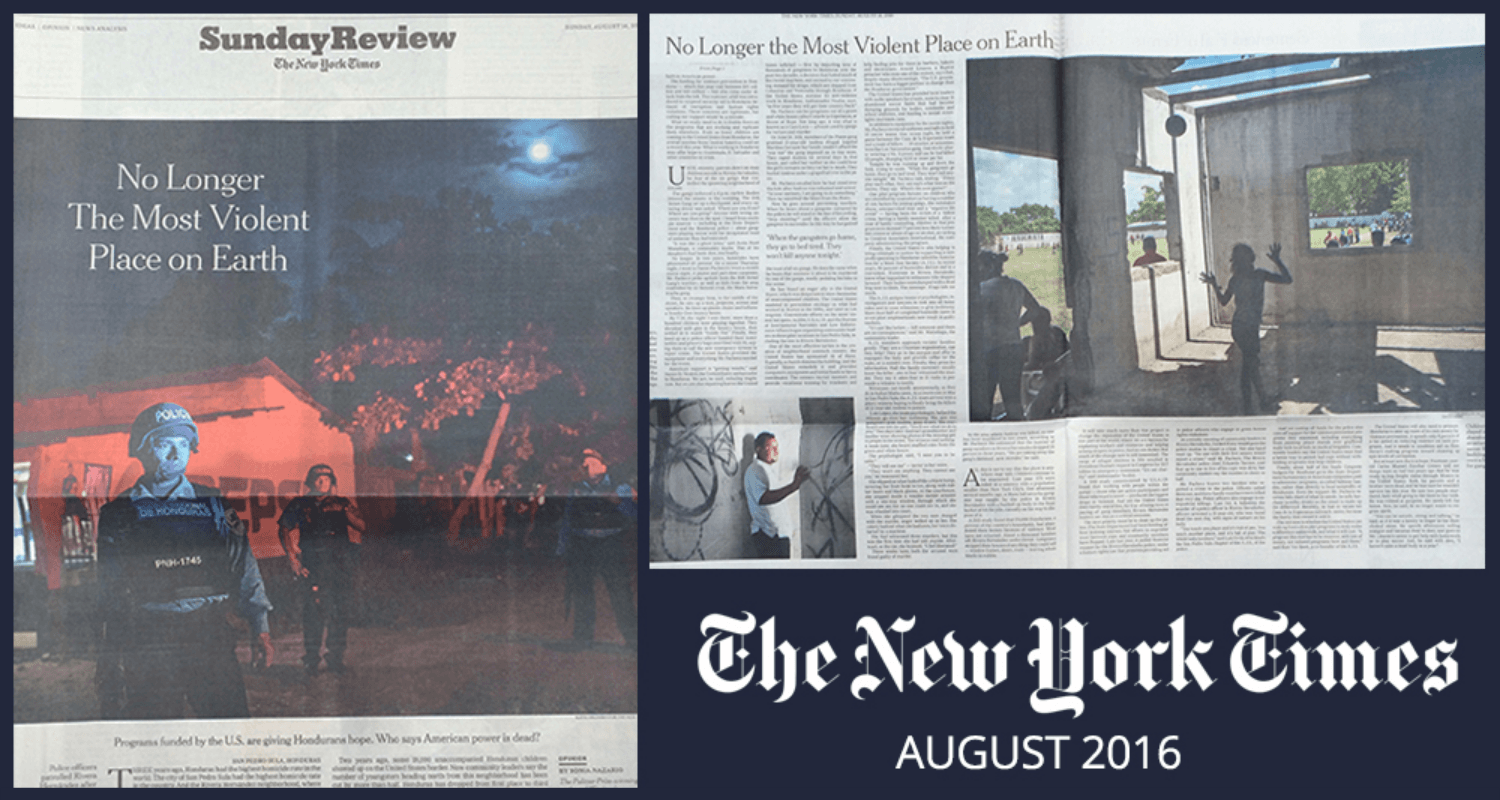August 15, 2016
Pulitzer Prize-winning author Sonia Nazario featured the work of ASJ (formerly known as AJS) in a New York Times feature on increased security in Honduras – “How the Most Dangerous Place on Earth Got Safer”.
Nazario spent time recently in Honduras, where she met with ASJ staff and visited some of the communities where our peace and security projects work, including communities near San Pedro Sula, in the north of Honduras.
Nazario is best known for her bestselling and award-winning book Enrique’s Journey – the true story of one Honduran boy’s dangerous trip to the United States to reunite with his mother.
Nazario retraced Enrique’s steps from a small community in Tegucigalpa, through Guatemala and Mexico on the back of a freight train, and finally across the Mexico-US border, the same journey that tens of thousands of Central American children have taken in the last few years.
Ten years after Enrique’s Journey was published, Nazario returned to a different Honduras – a slightly safer one. Recent reductions in violence in certain neighborhoods have cut the number of Honduran children crossing the border by half, Nazario reports in her article.
Nazario’s article calls for continued US funding for security programs in Honduras, programs that have been proved to reduce violence, and consequently the number of young migrants making the difficult and dangerous journey north.
In both this New York Times article, and an interview on the NPR program “All Things Considered”, she calls in particular for support of programs like that of ASJ’s that target particularly violent communities, and offer legal, investigative, and psychological support to homicide cases within them – a strategy that dropped homicides in one community by 62%.
Improvements in security do not mean that Honduras, or ASJ, have yet achieved their goal of ending violence. “The next priority must be to clean up the police,” Nazario writes in her article, mentioning high levels of corruption and mistrust in the police force. This is also a high priority for ASJ as, since April, ASJ staff have been at the forefront of police reform in Honduras, already helping to remove over a third of the corrupt leadership.
Though Honduras still has high levels of violence and homicide, and faces many challenges ahead, Nazario finds reason to hope:
Fourteen-year-old Carlos Manuel Escobar Gómez told me things were so bad two years ago that he was ready to hop freight trains through Mexico to the United States. Both his parents and a brother were dead, and he was sure he wouldn’t survive his 11th year. He saw two people murdered, both while going to the store to buy milk. He was robbed at gunpoint. He rarely left the house. Now, he said, he no longer wants to migrate north.
“You can be outside, sitting and talking,” he said, as if it was a luxury to linger in the dust-choked street. He spends afternoons selling mangos and bananas door to door, and goes to Mr. Linares’s center to get help with homework or to play soccer. And, he said with awe, “I haven’t seen a dead body in a year.”
To learn more about ASJ’s work reducing violence and corruption in Honduras, you can sign up for our email updates, or add your voice to our campaign advocating for transparent and effective police reform in Honduras. Together, we can work to make what was once called “the most violent place on earth” a place where all can live and flourish.



















